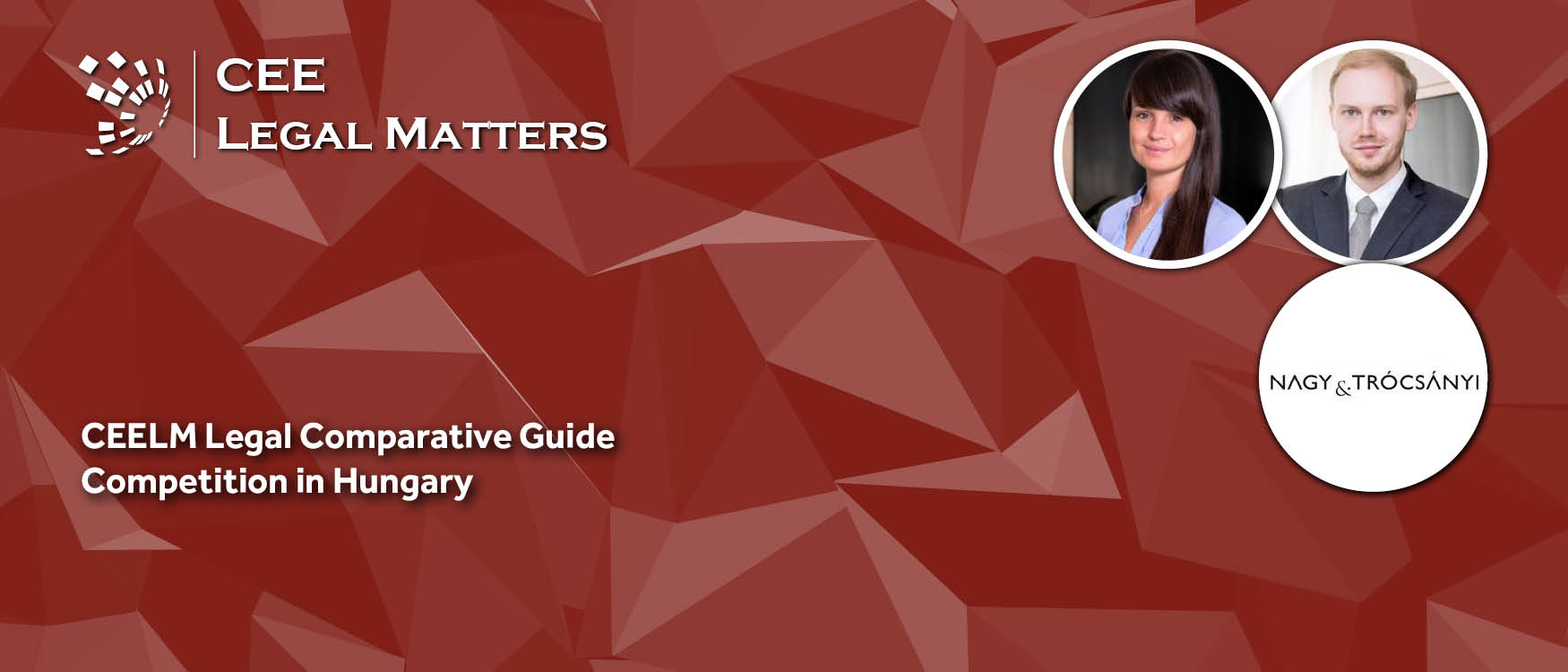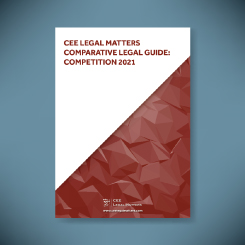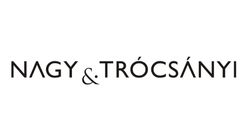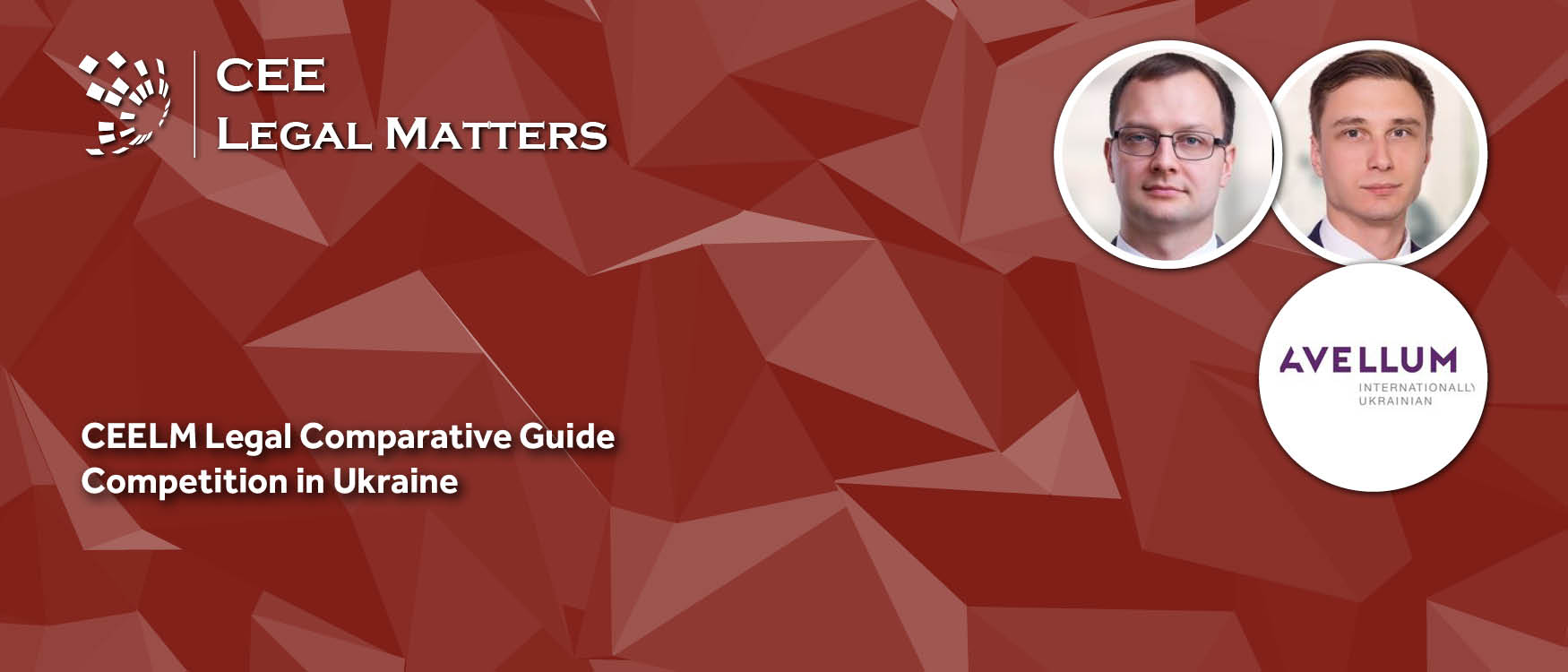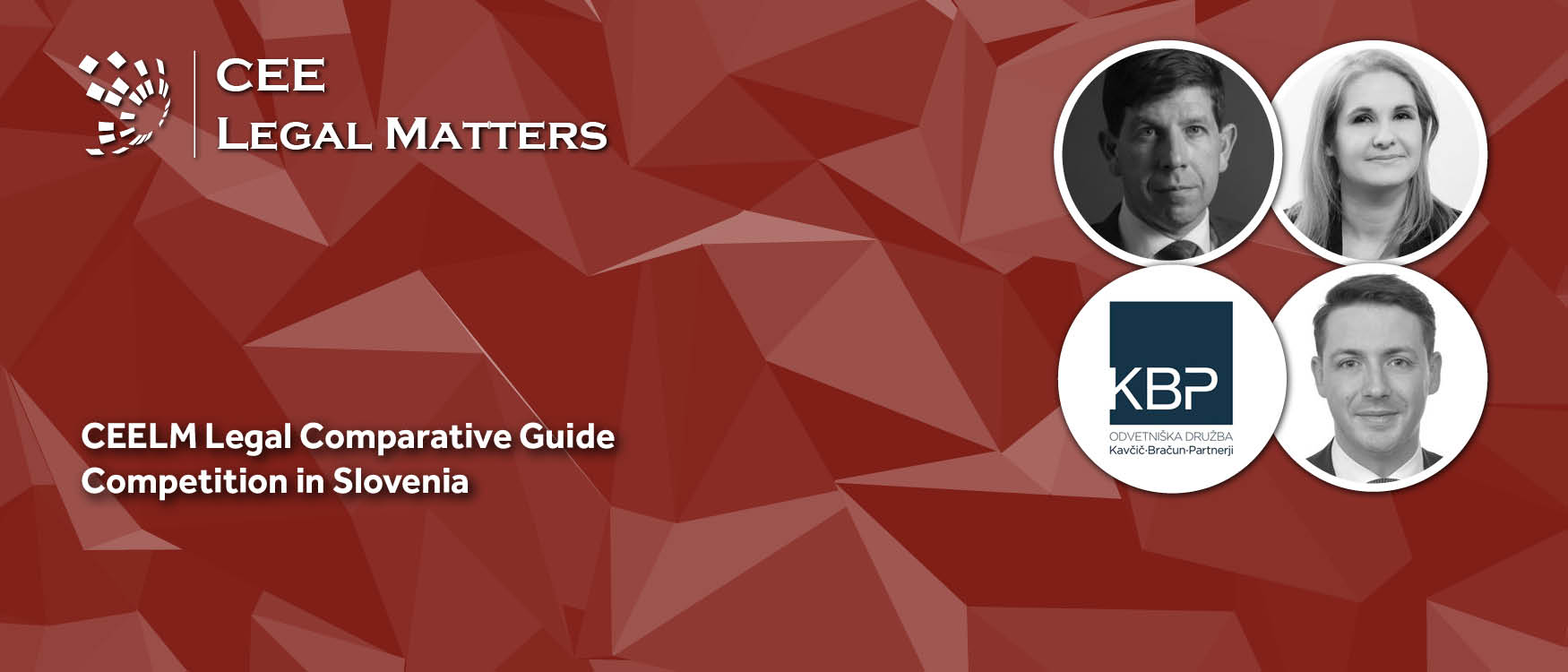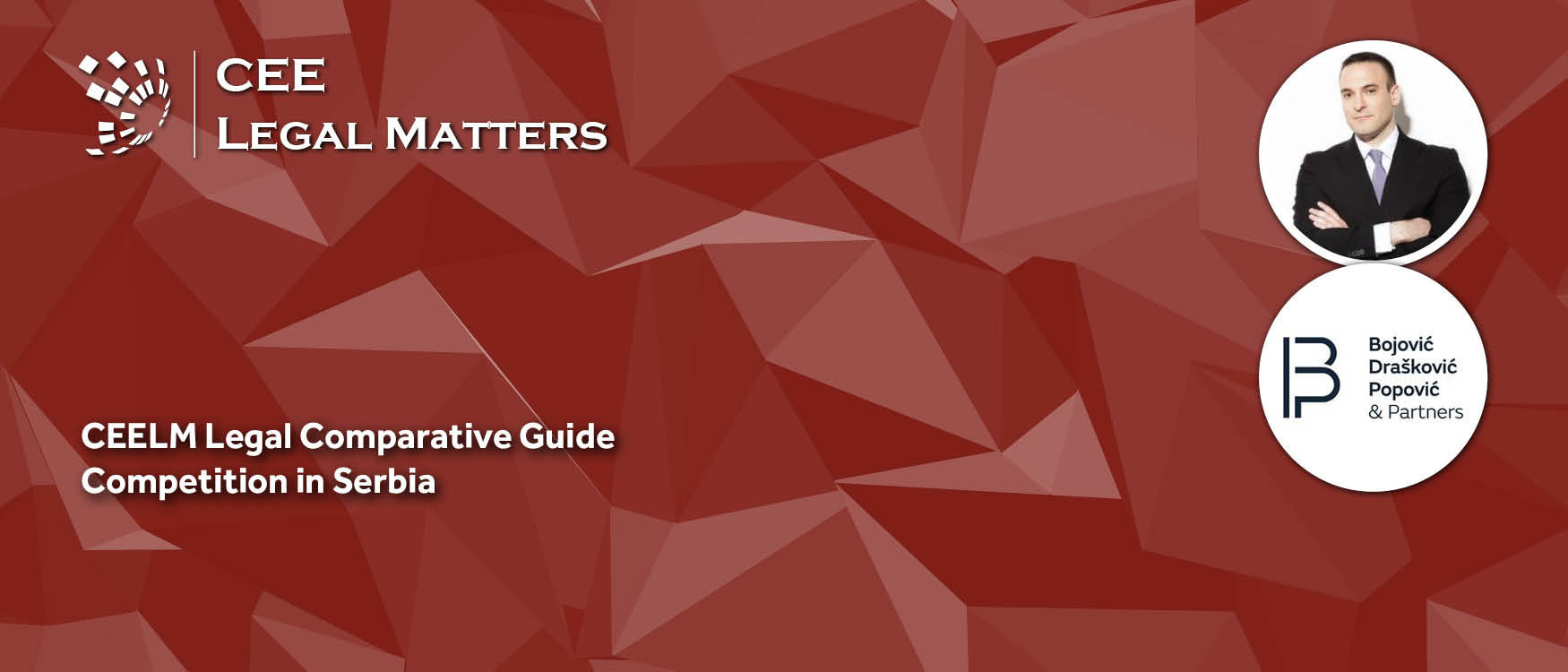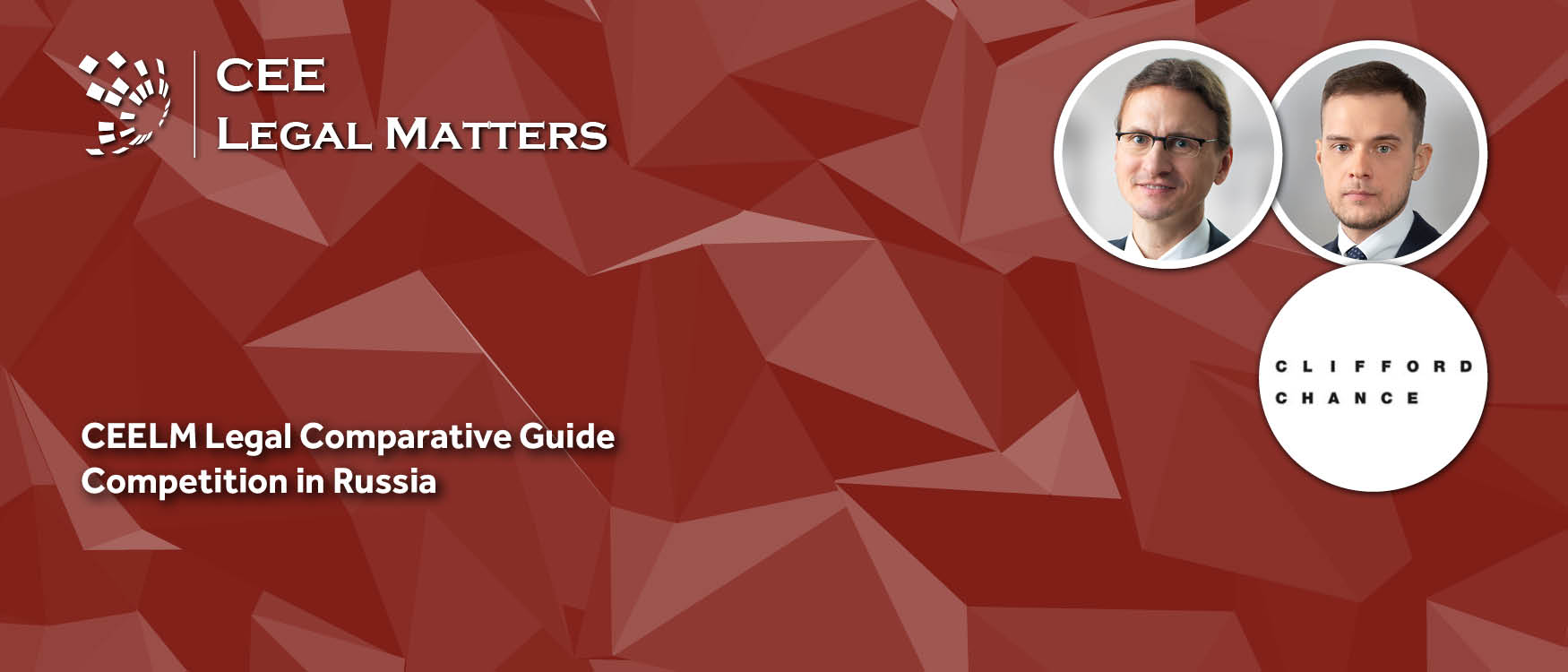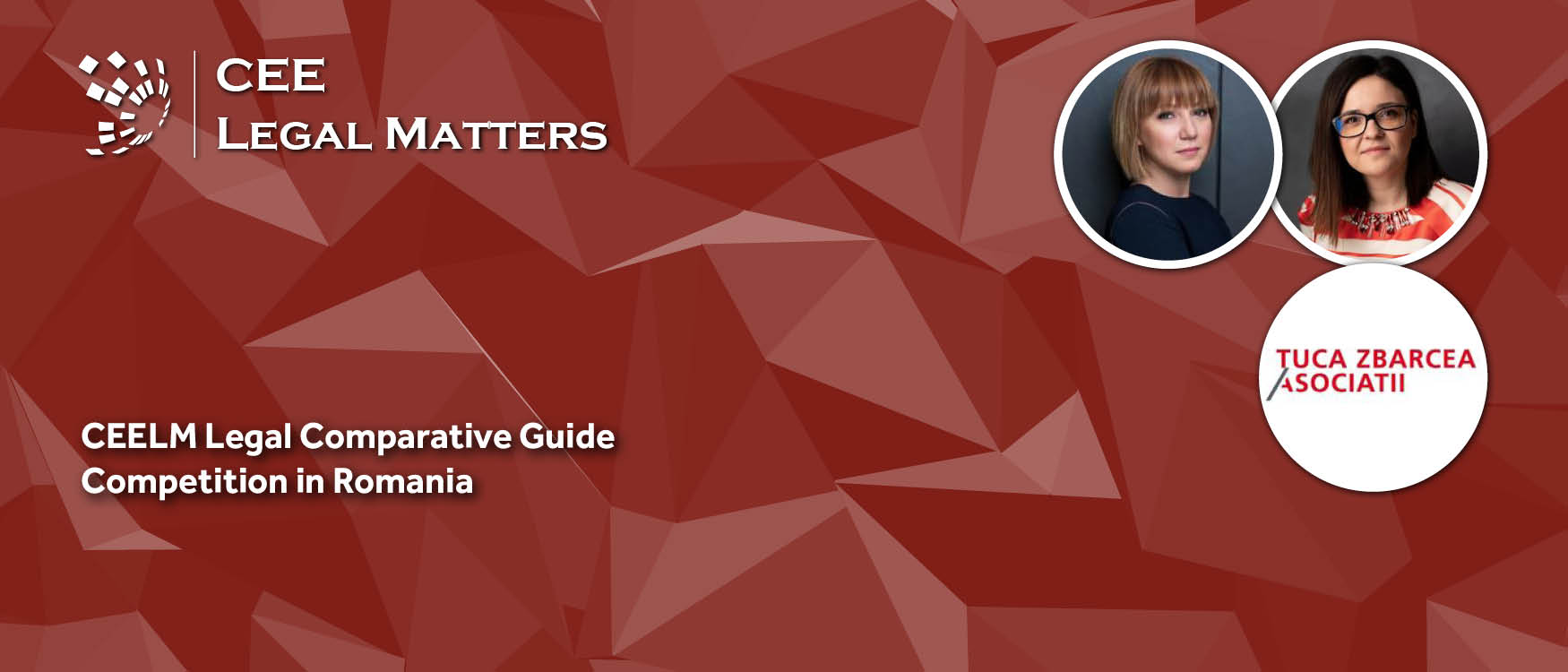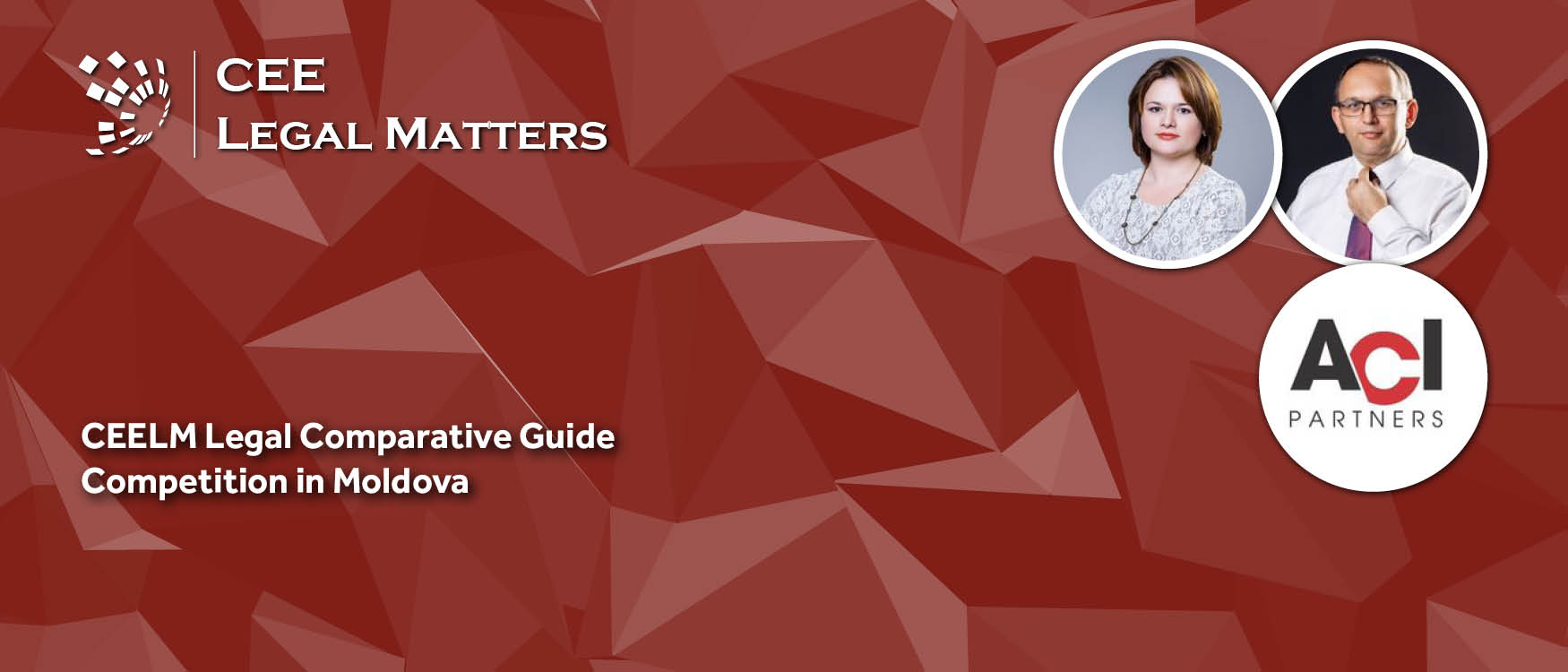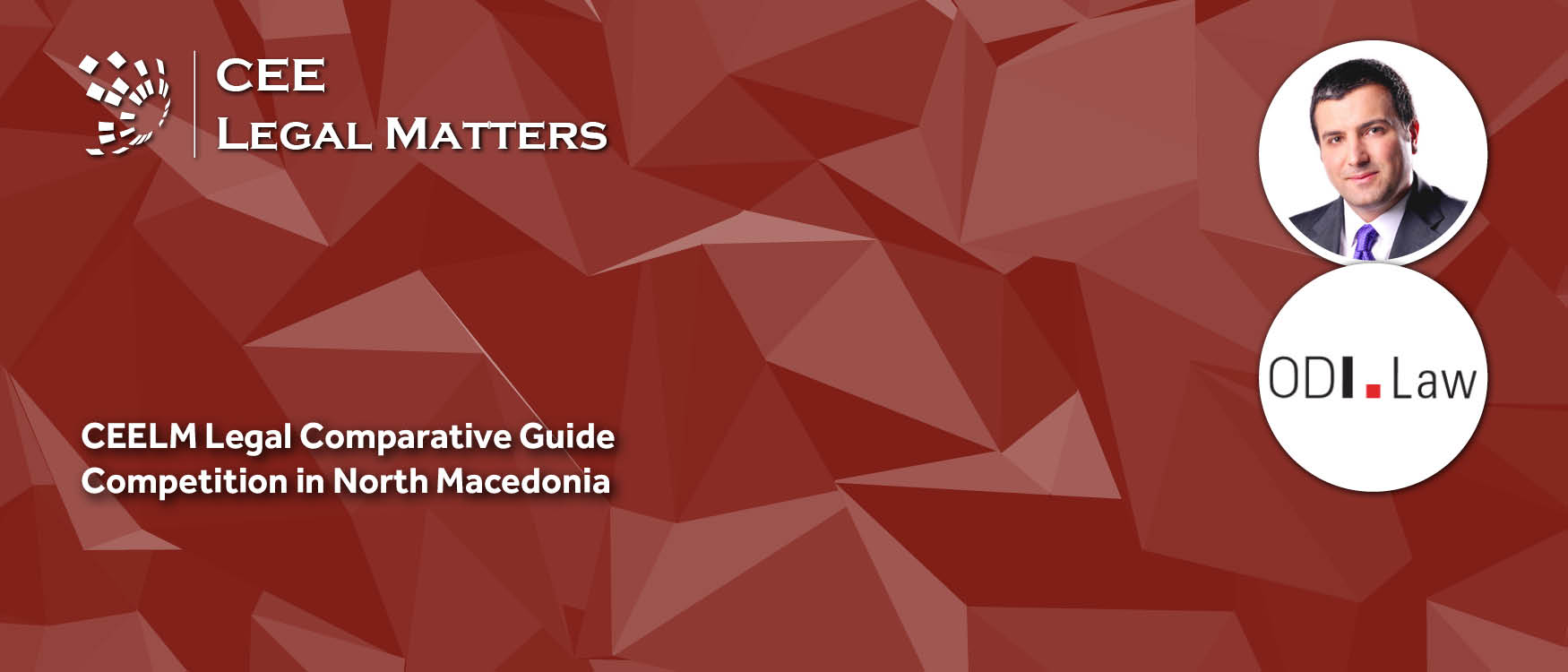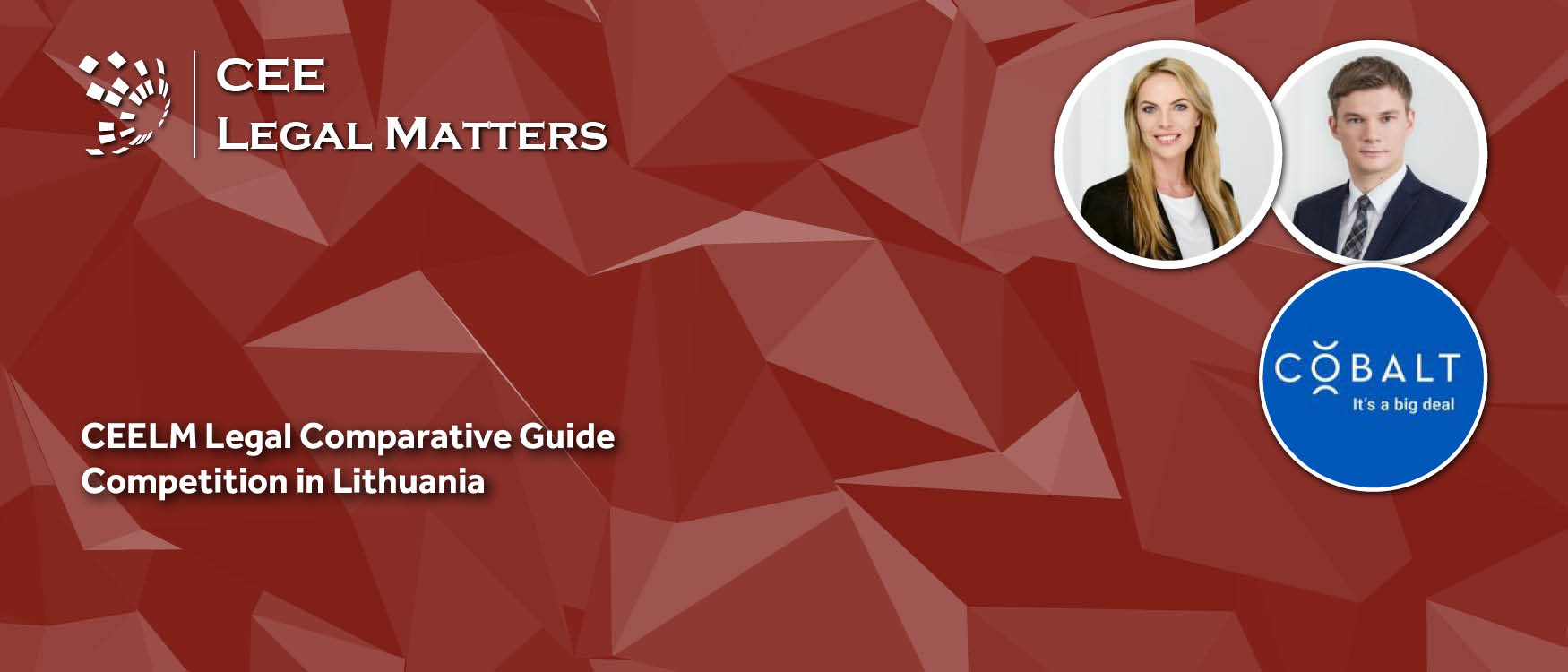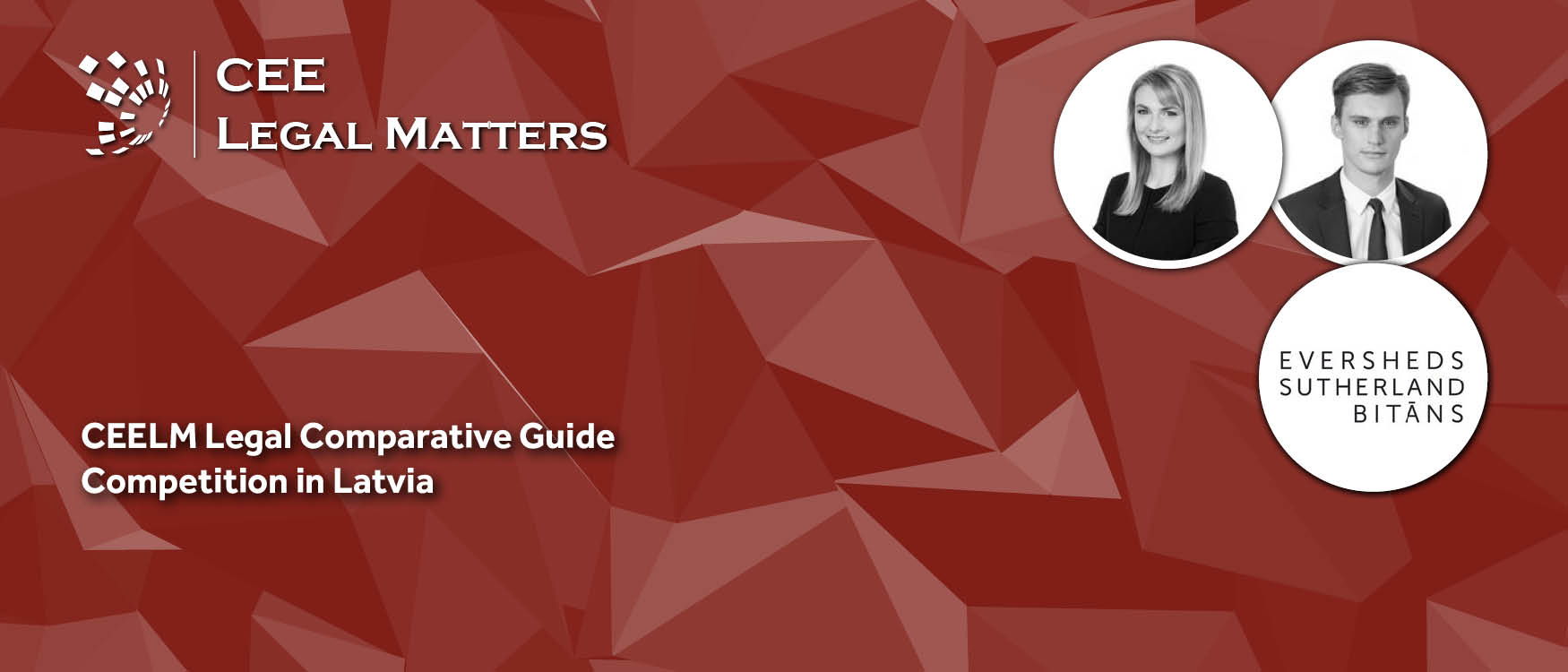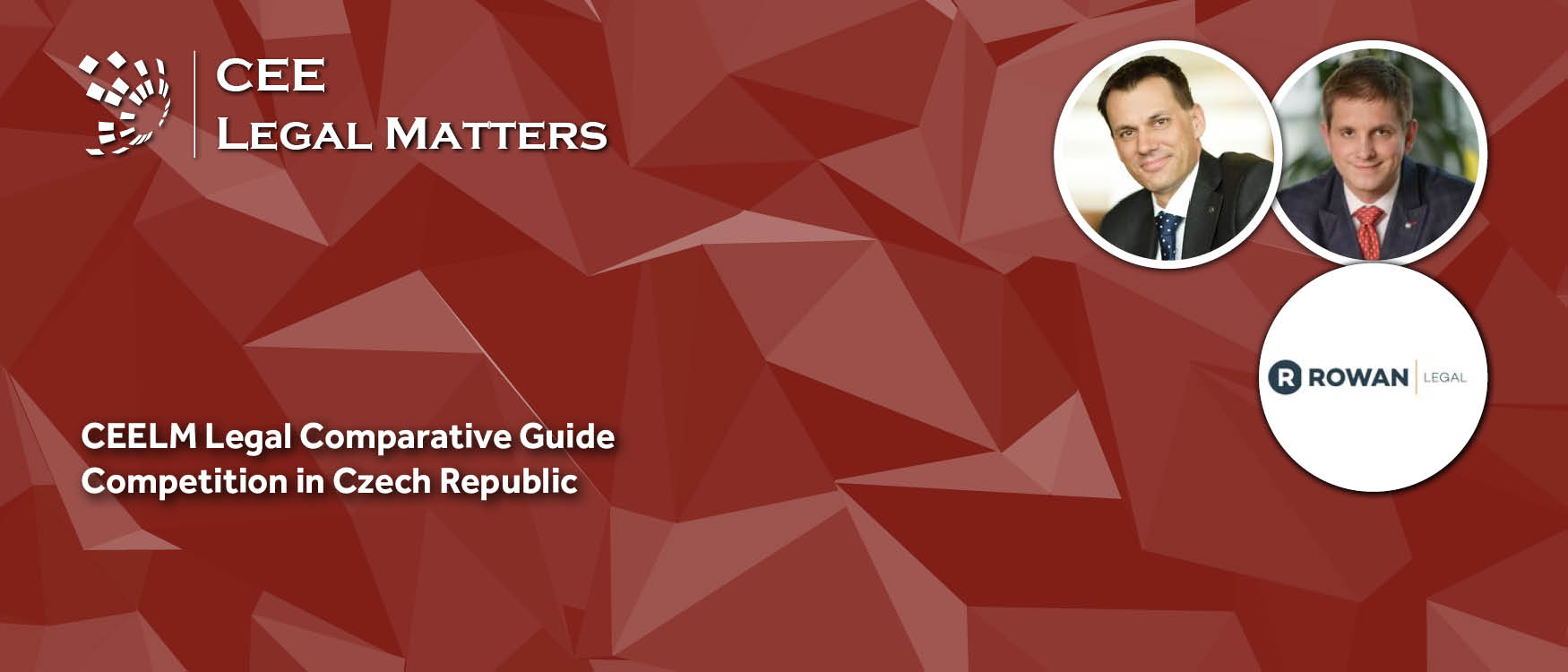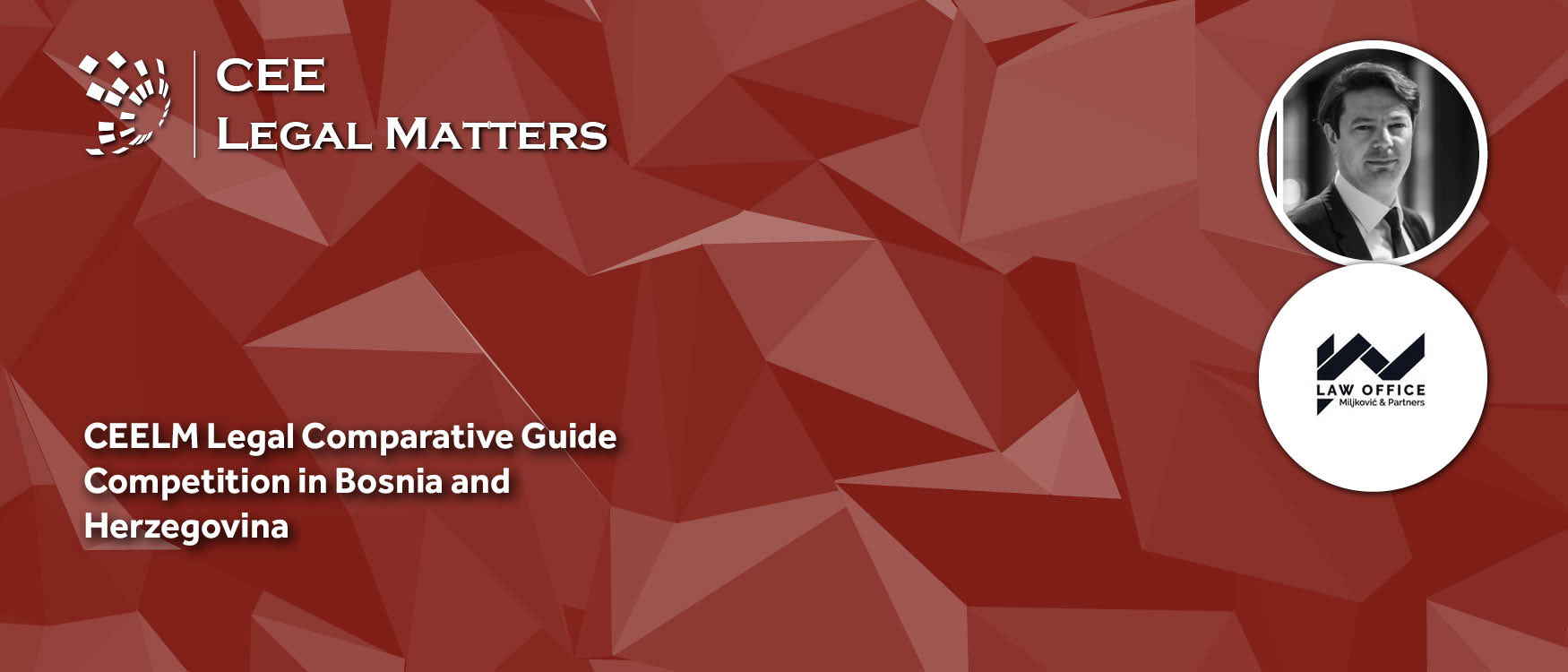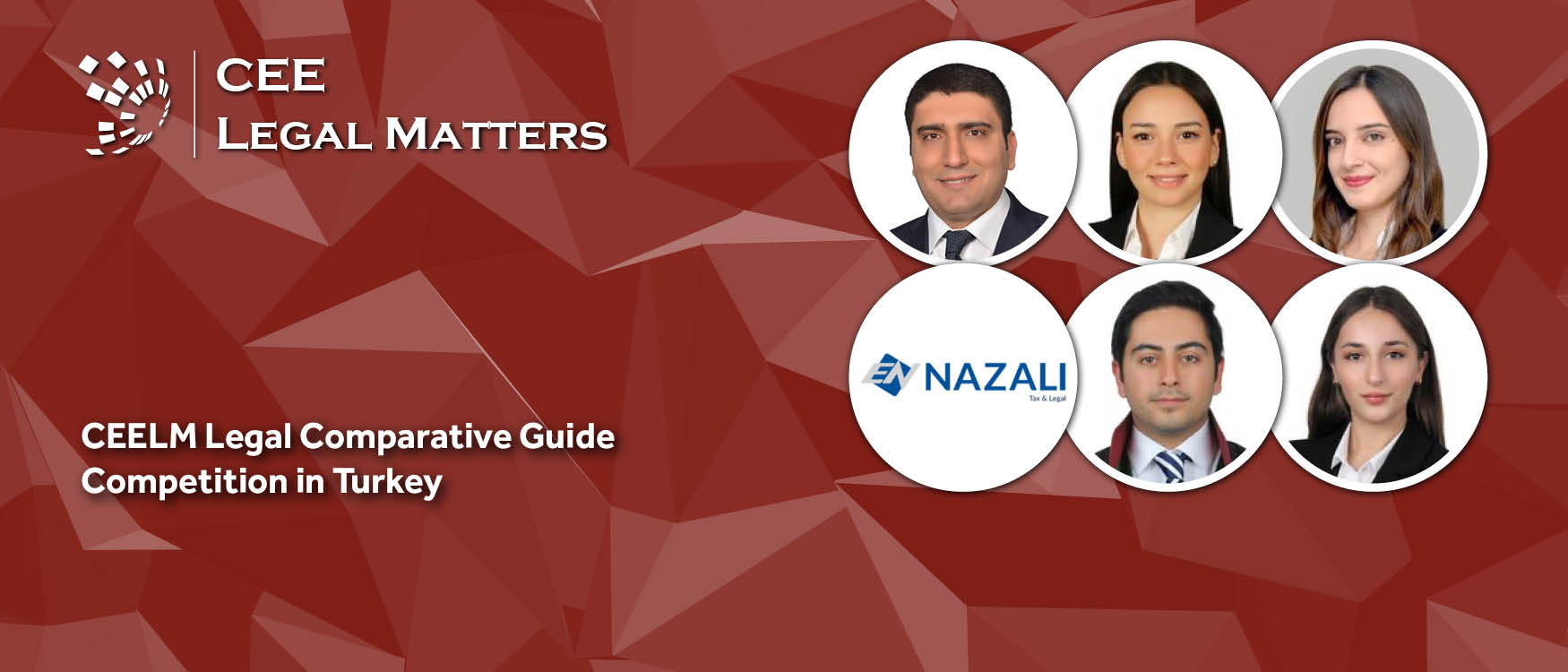Contributed by Nagy & Trocsanyi.
1. What are the main competition-related pieces of legislation in Hungary?
Act LVII of 1996 on the Prohibition of Unfair Trading Practices and Unfair Competition (Hungarian Competition Act) contains most of the substantive provisions of the Hungarian competition law, including not only antitrust issues and merger control regulation but also unfair competition and competition-related consumer protection provisions. Furthermore, it contains rules relating to the Hungarian Competition Authority (Gazdasagi Versenyhivatal; GVH) and the relevant procedural rules applicable by the GVH and the Hungarian courts in competition-related matters.
Apart from the Hungarian Competition Act, the main Hungarian competition-related pieces of legislation are the following:
- Government Decrees on the exemption for specific groups of agreements restricting competition in relation to:
- specialization (No. 202/2011.)
- vehicle aftermarket (No. 204/2011.)
- vertical agreements (No. 205/2011.)
- research and development (No. 206/2011.)
- technology transfer (No. 86/1999.)
- Act XLVII of 2008 on the Prohibition of Unfair Business-to-Consumer Commercial Practices
- Sectoral legislation applicable in certain sectors (e.g. trade, electronic communication, electricity, natural gas, public transport, medicine), including rules in relation to unilateral conduct in e.g. Act CLXIV of 2005 on Trade (Trade Act) or Act XCV of 2009 on the Prohibition of Unfair Trading Practices Applied Against Suppliers Relative to the Marketing of Agricultural and Food Products (Unfair Agricultural Trading Act).
Furthermore, as a member of the European Union, EU competition law is also directly applicable in Hungary. The GVH and the Hungarian courts must apply EU competition law in each case in which they would apply (or actually apply in parallel) national competition law to all the restrictive agreements and abuses of a dominant position that may affect trade between EU member states. In addition, depending on the turnover of the undertakings and the applicable thresholds as well as the number of the EU member states concerned, the merger control authorisation falls within the competence either of the European Commission or of the GVH acting as the national competition authority.
The main EU competition-related pieces of legislation are the following:
- Treaty on the Functioning of the European Union (TFEU), in particular Part III, Title VII of the TFEU
- Anti-competitive agreements, abuse of a dominant position:
- Council Regulation (EC) No. 1/2003 of December 16, 2002, on the implementation of the rules on competition laid down in Articles 81 and 82 of the Treaty
- Commission Regulation (EC) No. 773/2004 of April 7, 2004, relating to the conduct of proceedings by the Commission pursuant to Articles 81 and 82 of the EC Treaty
- Block exemption regulations:
- specialization (Commission Regulation (EU) No 1218/2010.)
- vehicle aftermarket (Commission Regulation (EU) No 461/2010.)
- vertical agreements (Commission Regulation (EU) No 330/2010.)
- research and development (Commission Regulation (EU) No 1217/2010.)
- technology transfer (Commission Regulation (EU) No 316/2014.)
- Mergers of undertakings:
- Council Regulation (EC) No. 139/2004 of January 20, 2004, on the control of concentrations between undertakings
- Commission Regulation (EC) No. 802/2004 of April 21, 2004, implementing Council Regulation (EC) No 139/2004 on the control of concentrations between undertakings
The GVH also uses soft law instruments by issuing public, non-binding documents (such as notices, communications and position statements) to describe the basic principles of the law enforcement practice of the GVH in specific questions and to outline the expected enforcement policy in general.
2. Are there any notable recent (last 24 months) updates of the Hungarian competition legislation?
As of January 2020, the Hungarian legislator amended Section 54/A. of the Hungarian Competition Act with the purpose of aligning the provisions of the Hungarian Competition Act related to the confidential treatment of data concerning witnesses with Section 28 (1) of Act CL of 2016 on General Public Administration Procedures. As a result of this alignment, it became possible to require the confidential treatment of the data of witnesses ex officio in competition supervision proceedings (versenyfelugyeleti eljaras) if such an order has already been made in another administrative or court proceeding.
Due to the COVID-19 pandemic, by way of derogation from the general merger notification obligation, from April 21, 2020, mergers of undertakings implemented through an equity scheme set up for that purpose, by way of financing transactions required as a result of the COVID-19 coronavirus with the involvement of a venture capital fund or private equity fund under direct or indirect majority state ownership, shall not be notified to the GVH if the venture capital fund or private equity fund under direct or indirect majority state ownership acquires control rights by self or jointly with other companies for the purpose of investment protection.
The amendment of the Trade Act effective as of December 12, 2020, concerned the HoReCa sector (hotel-restaurant-cafe). Pursuant to the amended legislation, as a general rule, exclusive contracts can no longer be concluded with the largest beverage suppliers (catering units will only be permitted to procure 80% of their products at most from the same manufacturer in each beverage category) and catering units are obliged to offer the products of at least two different manufacturers for sale to consumers in each beverage category (e.g. beer, soda, mineral water). The amendment of Trade Act also appointed the GVH as the competent authority to investigate any behaviours that may infringe these new legal provisions.
The amendment of the Hungarian Competition Act effective as of January 1, 2021, brought numerous notable changes to the Hungarian Competition Act.
The majority of these changes intended to ensure that the Hungarian Competition Act is fully compliant with EU Directive 2019/1 (ECN+ Directive). These changes include – amongst others – the followings: more possibilities for the GVH to acquire evidences during on-site inspections and to order (prolong) interim measures, new rules regarding commitments (consultation obligation of the GVH with companies and other affected parties before approving commitments in antitrust proceedings initiated on an EU law basis, right to revoke a decision approving commitments in case of incorrect, incomplete or misleading information provided by the undertakings (kotelezettsegvallalas), easier mechanism for the GVH to recover fines, new rules in connection with leniency applications (e.g. detailed rules on the cooperation obligation of the undertakings with the GVH, possibility for the undertakings to submit a “marker” application not only for immunity but also for reduction of fines), enhanced protection of sensitive information (business secrets), enhanced cooperation between national competition authorities.
As of July 9, 2021, for the period of state of danger declared due to the COVID-19 pandemic, the Hungarian Government expanded the GVH’s powers as a result of which the President of the GVH can order a so-called accelerated sector inquiry.
According to the latest notable change to the Hungarian Competition Act that came into effect as of September 30, 2021, by way of derogation from the general merger notification obligation, the parties will no longer be required to notify mergers to the GVH in the case of the investments of capital funds under majority state ownership.
3. What are the main concerns of the national competition authority in terms of agreements between undertakings? How about the sanctioning record of the authority?
A quite recent development is that the president of the GVH might specify the GVH’s competition law enforcement priorities on annual basis. Although, these priorities are not public information but the GVH usually reveals its actual priorities which were – for example in 2018 and 2019 – amongst others the following: cartels (mainly public procurement cartels), the protection of vulnerable consumers and commercial practices in digital markets. Nevertheless, cartels, in particular, the so-called hardcore cartels are always amongst the priorities of the GVH.
Given the increased consumer interest, by 2021, it has become an objective of the GVH to effectively detect infringing behaviors associated with the COVID-19 pandemic including unfair commercial practices, vertical agreements, and abuses of dominant market position. In addition, the Hungarian competition authority pays particular attention to investigating the behavior of large technology companies, addressing possible competition concerns in the construction sector and overseeing advertisements targeted at children. Infringements against vulnerable consumer groups or consumers with special needs (the elderly, children, sick) are a constant focus of attention of the GVH.
According to the GVH’s statistics, the number of investigated and closed cases in connection with restrictive agreements or conducts is usually around 10 cases per year.
The sanctioning record of the GVH is publicly available and freely searchable. Below is the total amount of fines imposed by the GVH in the last few years:
- 2016:
- Total imposed fines: HUF 5.363 billion (approximately EUR 15 million)
- Imposed fines in connection with restrictive agreements: HUF 4.491 billion (approximately EUR 12.5 million)
- 2017:
- Total imposed fines: HUF 1.344 billion (approximately EUR 3,7 million)
- Imposed fines in connection with restrictive agreements: HUF 81 million (approximately EUR 225,000)
- 2018:
- Total imposed fines: HUF 5.575 billion (approximately EUR 15.5 million)
- Imposed fines in connection with restrictive agreements: HUF 5.013 billion (approximately EUR 14 million)
- 2019:
- Total imposed fines: HUF 8.281 billion (approximately EUR 23 million)
- Imposed fines in connection with restrictive agreements: HUF 3.4 billion (approximately EUR 9.5 million)
- 2019:
- Total imposed fines: HUF 8.437 billion (approximately EUR 23.5 million)
- Imposed fines in connection with restrictive agreements: HUF 1.075 billion (approximately EUR 3 million)
In the recent years, the GVH passed several decisions concerning restrictive agreements (cartels). Some recent and notable cartel decisions of the GVH are the following:
- Dividing the market: In 2014, the GVH found that four newspaper publisher undertakings had entered into competition restrictive agreements aimed at preventing direct entry into each other’s geographical area. The GVH imposed a total fine of HUF 2.2 billion (approximately EUR 7.3 million) for the infringement. According to the decision, the existence of competition restrictive agreements was supported by the mutual non-competition clauses contained in the contracts between these newspaper publishers, which stipulated that the parties may not invade each other’s county-wide/regional market. As a result of court proceeding initiated by the publishers against the GVH’s decision, in 2021, the GVH recalculated the imposed fines and reduced the fines to HUF 830 million. (Case no. Vj/23/2011. and Vj/36/2020.)
- Price-fixing: In December 2020, the GVH found that the internal rules of the Association of Hungarian HR Consulting Agencies restricted competition among its members. The GVH imposed a fine of HUF 1 billion for the infringement. According to the decision, the organisation had been fixing minimum fees and other conditions with respect to the labor-hire and recruitment services provided by its members for a period of seven years starting in 2011. In the official press release relating to this decision, the GVH also noted that price-fixing is the most severe among restrictive market practices as it results in a direct and significant excess burden on society. (Case no. Vj/61/2017.)
- Bid-rigging: In January 2020, the GVH established that several undertakings producing and distributing diagnostic imaging products (MRI, CT, and X-ray equipment) had engaged in unlawful conduct related to the EU tender issued for the public procurement of diagnostic imaging equipment. The GVH imposed fines amounting to a total of EUR 4.8 million on the undertakings. Pursuant to the decision, the concerned undertakings had shared among each other the public procurement tenders. Their single and continuous anti-competitive conduct constituted one of the most serious infringements in competition law. (Case no. VJ/19/2016.)
- Information exchange: In January 2016, the GVH found that the Hungarian Banking Association with the collaboration of International Training Centre for Bankers Ltd. had been operating a database for 12 years in a way that was likely to restrict competition, as it had made it possible for the banks to share private, confidential and strategic data with each other. The GVH imposed a total fine of HUF 4.015 billion (approximately EUR 13 million) for the infringement. (Case no. Vj/8/2012.)
- Vertical anti-competitive behavior, resale price maintenance: In August 2016, the GVH imposed a fine of HUF 44 million on Pick which had determined minimum resale prices when distributing meat products processed by Pick during promotions. According to the decision, Pick was able to force the recommended consumer prices on its commercial partners by threatening them with delisting and the imposition of other sanctions. (Case no. Vj/37/2014.)
- Vertical anti-competitive behaviour, exclusive contracts: In July 2015, the GVH intervened in the structure of the Hungarian beer market. The GVH found that through exclusive contracts, Heineken, Borsodi, Dreher and Pecsi Sorfozde Zrt. together took up 43.5-44.3% of the sales of beer consumed on premises in Hungary. In addition, (along with Carlsberg) the five largest market players accounted for 82-95% of the total sales made in the so called HoReCa (Hotels, Restaurants, and Catering/Cafes) market in the period investigated. As a consequence of the exclusivity clauses, neither imports nor small breweries were able to gain market shares vis-a-vis the large beer companies. The GVH accepted the commitments offered by the undertakings according to which the largest Hungarian beer companies will decrease their respective beer sales tied by exclusive contracts. According to the Decision no. VJ/6/2018, Heineken failed to appropriately justify its commitment to decrease the amount of beer sold under exclusive contracts, thus the GVH imposed a fine HUF 75 million on the undertaking. (Case no. Vj/49/2011. and Vj/6/2018.)
- Parallel trade restriction: In December 2019, the GVH imposed fines of over EUR 1.5 million on three undertakings for restricting the distribution of alarm equipment for almost 10 years. Based on the evidences, the undertakings had prohibited the export of their products, had fixed the minimum prices of installers and thereby indirectly had fixed the resale prices, and had restricted the online sale of products by prohibiting the online publication of end-user prices. (Case no. Vj/97/2016.)
4. Which competition law requirements should companies consider when entering into agreements concerning their activities on the Hungarian territory?
The starting point for the competition law assessment of agreements and concerted practices between undertakings is the requirement that the undertakings shall make their market decisions independently of their competitors and avoid any illegal collaboration with competitors.
The Hungarian Competition Act has extraterritorial scope which means that it is not only applied to undertakings seated in Hungary or Hungarian branches of foreign-registered companies but also to companies seated abroad if the effect of their conduct has an impact within the territory of Hungary.
The Hungarian Competition Act generally prohibits the conduct of economic activities in an unfair manner, in particular, in a manner violating or jeopardizing the lawful interests of customers, buyers and users, as well as competitors, or in a way which is in conflict with the requirements of business integrity. The infringement of the above general prohibition and certain other prohibited conducts specified in the Hungarian Competition Act (libel, breach of business secrets, boycott call, breach of industrial property rights, misleading comparative advertising, interfering with the integrity, and fairness of bidding) may serve as a basis for litigation between competitors (companies) or between companies and consumers.
Activities more prejudicial to the public interest are investigated by the GVH, e.g. misleading trading parties (especially consumers) in economic competition, business practices intended to unjustifiably impair the trading parties’ freedom of choice, agreements restricting competition (cartels), and abuse of dominant position.
With regard to agreements restricting competition, Section 11 of Hungarian Competition Act prohibits any agreements and concerted practices between companies which are aimed at the prevention, restriction or distortion of economic competition, or which may display or in fact displays such an effect. This prohibition applies both to horizontal and vertical agreements, e.g.:
- fixing the purchase or sales prices, and defining other business conditions directly or indirectly;
- restricting manufacture, distribution, technical development or investment, or keeping them under control;
- dividing the sources of supply and restricting the freedom of choosing from among them, as well as excluding specific trading parties from the purchase of certain goods;
- dividing the market, excluding any party from selling, and restricting the choice of means of sales;
- preventing any party from entering the market;
- where, in respect of transactions of an identical value or of the same nature, certain partners are discriminated against, including the setting of prices, payment deadlines, discriminatory sales or purchase conditions or the employment of methods which cause disadvantage to certain business partners in the competition;
- rendering the conclusion of a contract conditional upon undertaking any commitment which, due to its nature or with regard to the usual contractual practice, do not form part of the subject of the contract.
Although, the above list does not explicitly mention certain specific types of cartel infringements (e.g. information-sharing), the case law considers e.g. the information exchange as a practice which might display anticompetitive effects or be a sign of an existing prohibited agreement. In principle, any exchange of information may be considered anti-competitive, especially if it concerns the present or future prices between competitors. The undertakings therefore should avoid sharing any confidential business information with competitors. Also, the GVH investigates the so-called hub-and-spoke arrangements which are horizontal restrictions on the supplier or retailer level (the spokes), which are implemented through vertically related players that serve as a common “hub” (e.g. a common manufacturer, service provider). The hub facilitates the co-ordination of competition between the spokes without direct contacts between the spokes. Based on the above, the undertakings should consider the amount of information shared with their suppliers or retailers.
The above agreements and practices are generally prohibited; however, the legislator specified some exemptions from the above general prohibition on the basis of lower threat to competition due to the minimal impact on market or if the overall effect of an agreement is more useful than the danger the agreement may pose. These exemptions are the following:
1. Agreements of minor importance (less than 10% (or in case of vertical agreement 15%) of cumulative market share of the undertakings), except if:
- their object is the restriction, prevention or distortion of competition, such as the fixing or coordination of purchase or selling prices or other trading conditions, the allocation of production or sales quotas, the sharing of markets, including bid-rigging, restrictions of imports or exports (cartel), including any agreement aiming, directly or indirectly, for fixing purchase or sale prices, or concerted practices; or
- are capable to create an environment, in conjunction with other agreements of the like, whereby competition in the relevant market is substantially obstructed, restricted or distorted.
2. Certain groups of (vertical) agreements have been exempted from the cartel prohibition by the Government in a decree (see answer given to Question 1 (block exemption)).
3. An agreement might also be exempted if all of the following conditions are met (individual exemption):
- it contains facilities to improve the efficiency of production or distribution, or to promote technical or economic development, or the improvement of means of environmental protection or competitiveness (which means actual, objective development in the full period affected with the infringement);
- a fair part of the benefits arising from the agreement is conveyed to trading parties who are not parties to the agreement;
- the concomitant restriction or exclusion of economic competition does not exceed the extent required for attaining the economically justified common goals; and
- it does not contain facilities for the exclusion of competition in connection with a considerable part of the goods concerned.
Note: if one party to an agreement in question has a significant market power / dominant position in the relevant market, then it should also take into account the rules regarding unilateral conduct (see answer given to Question 6)
5. Does a leniency policy apply in Hungary?
The detailed rules of the Hungarian leniency policy can be found in Sections 78/A-79. of the Hungarian Competition Act. Also, there is a useful guideline issued by the GVH in its Notice No. 14/2017 regarding leniency applications.
The leniency policy applies only to the most serious types of infringements, i.e. cartel infringements constituting an infringement of Section 11 of the Hungarian Competition Act or Article 101 of the TFEU or any agreement aiming, directly or indirectly, for fixing purchase or sale prices, or concerted practices.
Undertakings that disclose the above infringements to the GVH might be granted immunity from fines, their fines might be reduced, and they might gain certain other additional benefits as well. The Hungarian Competition Act strictly regulates the manner of the information and evidence disclosure and the conditions of the potential immunity or fine reduction:
- Immunity: Immunity can be only granted to the undertaking that first submits an application to that effect and supplies any evidence (i) to the GVH serving reasonable cause to request and receive a prior court order for carrying out a site search in connection with the infringement, provided that the GVH did not have enough information at the time of submission of the application serving reasonable cause to request a prior court order for carrying out the site search, or did not carry out a site search previously, or (ii) sufficient to prove the infringement, provided that the GVH did not have enough evidence at the time the evidence was provided to prove the infringement, and neither of the companies involved meets the condition set out in (i).
- Fine reduction: immunity may be granted and the undertaking in question supplies any evidence relating an infringement to the GVH that is recognized considerably more valuable than any proof the GVH has in its possession at the time the evidence is provided. The rate of reduction of the fine is: between 30% to 50% in respect of the company being the first to meet the above condition, between 20% to 30% in respect of the company being the second to meet the above condition, up to 20% in respect of the company being the third or beyond to meet above condition. If an undertaking provides clear and convincing evidence in respect of a fact or circumstances of which the GVH was previously unaware and that has any direct bearing on determining the amount of the fine, and such fact or circumstance serves grounds to increase the amount of the fine to be imposed, that fact or circumstance shall be ignored when determining the amount of the fine to be imposed upon the undertaking.
Other conditions for granting immunity or fine reduction are the following: the undertaking shall (i) terminate its involvement in the infringement immediately (except if the GVH orders to maintain such involvement to the extent and in the manner deemed essential to ensure the success of the investigation); (ii) cooperate with the GVH in good faith and continuously; (iii) not, without the express consent of the GVH, disclose in any way the fact that it has submitted an application for immunity or fine reduction, including the contents of the evidence supplied in that regard; (iv) not destroy, falsify, or conceal the relevant evidence or disclose the fact of, or any of the content of, its application during the assessment of the submitted application conducted the GVH.
Additional benefits:
- In a civil lawsuit, any party to a restrictive agreement, whose fine was waived in the competition supervision procedure for its active cooperation in the detection of the restrictive agreement pursuant to the leniency policy specified in the Hungarian Competition Act, shall be jointly and severally liable for damages caused solely to its own indirect and direct purchasers or suppliers and may refuse to provide compensation for the damage caused to other injured persons until the claim can be collected from any other party to the restrictive agreement.
- Participation in cartel in a public procurement or concession procedure is a criminal offense, however, employees and officials of the undertaking requesting leniency for immunity might be exempted from the punishment or their punishment might be reduced indefinitely.
- If an undertaking has been granted immunity, it shall not be excluded from the participation in a public procurement procedure as a tenderer.
The Hungarian Competition Act also contains detailed procedural rules with regard to the submission of a leniency application.
6. How is unilateral conduct treated under Hungarian competition rules?
The unfair unilateral conducts are regulated in several Hungarian laws:
- general conducts: restrictive exclusionary market practices and exploitative strategies are regulated in Section 21 of the Hungarian Competition Act (abuse of dominant position);
- further prohibited conducts are specified in Section 7 of Trade Act regarding the relationship between traders with significant market power and their suppliers;
- further specific rules applicable to agricultural and food products are regulated in the Unfair Agricultural Trading Act.
Abuse of dominant position – Hungarian Competition Act
Under the Hungarian Competition Act, the most serious unilateral conducts include restrictive exclusionary market practices and exploitative strategies. Section 21 of the Hungarian Competition Act provides only an exemplary list of these types of conducts according to which it is prohibited to abuse a dominant position, in particular:
- to fix purchase or sales prices unfairly in business relations, including where general contract terms and conditions are applied, or to stipulate unjustified advantages by any other means, or to force the acceptance of detrimental terms and conditions on the other party;
- to restrict production, distribution or technical development to the detriment of final trading parties;
- to refuse to establish or maintain business relations adequate for the nature of the transaction without any justification;
- to influence the other party's business decisions for the purpose of gaining unjustified advantages;
- to withdraw goods from general circulation or to withhold goods without justification prior to price increases or for the purpose of causing prices to rise, or by means otherwise capable of securing unjustified advantages or causing a disadvantage in competition;
- to render the supply and acceptance of goods contingent upon the supply or acceptance of other goods, or to render the conclusion of a contract conditional upon undertaking any commitment which, due to its nature or with regard to the usual contractual practice, does not form part of the subject of the contract;
- in connection with transactions of an identical value or of the same nature, to discriminate against certain business partners without due cause, including the setting of prices, payment deadlines, discriminatory sales or purchase conditions, or the employment of methods which cause disadvantage to certain business partners in the competition;
- to force competitors off the relevant market, or to use excessively low prices which are based not upon better efficiency in comparison to that of the competitors, so as to prevent competitors from entering the market;
- to hinder competitors from entering the market in any other unjust manner; or
- to create a market environment that is unreasonably disadvantageous for the competitors or to influence their business decisions for the purpose of gaining unjustified benefits.
The above types of unilateral conducts are investigated in all markets (including those markets or business relationships to which special unilateral conduct rules specified in other laws are also applicable).
It is important to note that the above unilateral conducts are investigated only if the given undertaking possesses substantial market power, in particular, if it has a monopoly position (the exact term used in the Hungarian Competition Act is the “dominant position”).
An undertaking is considered to be in a dominant position if it is able to conduct its activities in a manner largely independent of other market players (customers, competitors, suppliers) without having to take into consideration their market policies in so far as to eliminate effective competition.
According to the Hungarian Competition Act, the following criteria shall, in particular, be taken into account for the assessment of dominant position (in practice, however, the assessment is always specific to the market under investigation):
- the costs and risks entailed by entering into the relevant market and by exiting it, and the implementation of the technical, economic or legal background that may be required;
- the assets, financial strength and income of the company or group of companies and/or the development thereof;
- the structure of the relevant market, the ratios of market shares, the conduct of the participants of the market, and the economic influence exercised by the company or group of companies over the development of market trends.
In light of the above, there is no exact percentage of market share in the Hungarian Competition Act which could serve as a threshold for establishing the existence of a dominant position since the GVH analyses the given market on a case-by-case basis.
Prohibited conducts between traders with significant market power and their suppliers – Trade Act
Further types of prohibited unilateral conducts are specified in connection with the relationship between traders with significant market power and their suppliers in Section 7 of the Trade Act. The prohibited conducts specified in the Trade Act are the following:
- any undue discrimination against a supplier;
- undue restriction of access of a supplier to marketing channels;
- prescribing undue risk pooling contract conditions resulting in one-sided advantages to the trader as against the supplier, meaning in particular the charging of expenses serving also the business interest of the trader, such as storage, advertising, marketing, and other costs to the supplier;
- unjustified amendment of contractual conditions to the detriment of the supplier, or installing a clause permitting such possibility for the trader;
- imposing unfair conditions upon the supplier in connection with his business relations with the trader or with another trader, such as demanding the best available terms and conditions as obligatory, and enforcing such terms and conditions with retroactive effect, i.e. compelling the supplier to provide discounts during a specific period for a specific product only to the trader in question, or compelling the supplier to manufacture products under the trader's trade mark or brand name as a precondition for the marketing of any other product of the supplier;
- applying various charges upon the supplier, such as for services not otherwise requested by the supplier, as a precondition for being admitted to the trader's list of suppliers or products;
- asserting a threat for cancelling the contract to impel contract conditions for lopsided advantages;
- applying pressure upon a supplier to use other suppliers or the trader's own supplier;
- applying a sale price for products which are not owned by the trader below the price invoiced as contracted, not including the prices employed for the sale of products with some defect or for the sale of products inside of a seven-day period before the date of expiry of their shelf life, or the introductory prices that may be used for maximum fifteen days, or the prices employed in a clearance sale for maximum fifteen days in any seasonal campaign, any sales campaign due to changing models or profile, or due to going out of business.
Under the Trade Act, the term “significant market power” differs from the term dominant position mentioned above. Significant market power is deemed to have been assessed against a supplier if the consolidated net revenues of a company group from trading activities from the previous year is in excess of HUF 100 billion.
Even if this threshold is not met, a trader is deemed to have significant market power if the trader (or its group) enjoys or is likely to enjoy a one-sided bargaining position in connection with a supplier due to the existing market structure, restrictions in entering the market, the company's market share, financial strength and other resources, or the magnitude of the company's commercial network, the size, and location of its commercial establishments, and any other related activities.
Prohibited conducts between traders and suppliers in agricultural market – Unfair Agricultural Trading Act
Further specific rules apply to the market of agricultural and food products prescribed in the Unfair Agricultural Trading Act which are enforced by a specific agency, the Nemzeti Elelmiszerlanc-biztonsagi Hivatal (National Food Chain Safety Office). The purpose of this Act is to ensure that fair business practices are exercised between companies engaged in trading agricultural and food products and their suppliers. Some examples of the prohibited unfair practices are the following: prescribing undue risk pooling arrangements resulting in one-sided advantages to the trader as against the supplier; introducing contract terms stipulating various types of buy-back or take-back obligations; charging any fee to the supplier for being admitted to the trader’s list of suppliers; charging unfair fees or forcing price reduction, contribution in discounts, etc. (there are more than twenty prohibited conducts listed in this Act).
It is important to note that since the above unilateral conducts are generally prohibited therefore, the existence of the trader’s significant market power is not a precondition.
7. Are there any recent local abuse cases of relevance?
Between 2019 and June 2021, the GVH adopted five decisions in cases related to the abuse of dominant position. The GVH closed two cases with commitments, one case was terminated in the course of the investigation, while the remaining two cases were follow-up investigations.
Amongst these cases, it is worth mentioning the case No. Vj-43/2016 (the Spar Case) closed in December 2020. The GVH has found that SPAR Magyarorszag Kereskedelmi Kft. had discontinued the ex-post supplier fee, which was established in 2012, it had also introduced a new fee with an identical effect. The GVH proved that this fee, applied as a mandatory contractual term between 2014 and 2015, violated the Trade Act just as its predecessor did, meaning that the supermarket chain abused its dominant position once again. This was due to the fact that the bonus system implemented by Spar unilaterally required the payment of unwarranted fees by suppliers in order to get their products stocked on the shelves of the supermarket chain. In addition to establishing the fact of the infringement, the GVH resolved to order the company to fulfil certain commitments instead of imposing a fine.
8. What are the consequences of a competition law infringement?
The main possible legal consequences of competition law infringements are the followings:
- legal consequences established by competition supervision proceedings;
- legal consequences established by the court in actions initiated by the GVH;
- legal consequences established by the court in actions initiated by the interested party;
- legal consequences falling under the scope of criminal law.
Competition supervision proceedings (public law enforcement)
The competition supervision proceeding is a public law claim enforcement form which is regulated by the Hungarian Competition Act: “[c]ompetition supervision proceedings are administrative proceedings conducted to identify infringements of this Act […], and for the examination of concentration of companies in accordance with this Act, as well proceedings designated as such by specific other act.” (Section 44 (1) of Hungarian Competition Act).
Concerned competition law infringements
The infringements – inter alia – in case of which a competition supervision proceeding might be launched:
- unfair manipulation of business decisions (Chapter III Competition Act);
- agreements restricting economic competition (Chapter IV Competition Act);
- abuse of dominant position (Chapter V Competition Act);
- concentration of companies (Chapter VI Competition Act);
- abuse of significant market power against suppliers (Section 7 of Trade Act);
- infringement of the provision according to which in connection with the supply of beer, soft drinks, fruit drinks, fruit juices, and fruit nectars, as well as mineral waters and soda water (carbonated water) no legal statement can be made suggesting that more than 80% of all procurements in a calendar year, or for a specific special event, of the product to which the statement pertains of a hospitality establishment, including sales in special events, or a place of accommodation is from the same manufacturer (Section 7/B of Trade Act).
The main rules of the competition supervision proceeding
The competition supervision proceeding consists of two parts: (i) examination phase and (ii) the proceedings of the competition council (versenytanacs).
In the examination phase the investigator shall make the decisions and shall take the actions deemed necessary. Thus, the investigator shall adopt an order to order an investigation in connection with any allegedly illegal activity falling within the competence of the Hungarian Competition Authority, where a competition supervision proceeding is required for the protection of public interest. Upon conclusion of the investigation, the investigator shall prepare a report and present it, together with the relevant documents, to the competition council.
In the proceedings of the competition council the competent competition council shall make the decisions and shall take the actions deemed necessary. After the receipt of the investigator’s report, the competition council has different rights, e.g. it may return the documents to the investigator if the council deems certain further actions necessary or may impose provisional measures. If based on the final investigation report returning the documents to the investigator is not required or the proceedings need not be terminated, and the conduct in question cannot declared as not infringing, the competent competition council shall submit to the client its preliminary assessment relating to the case, which shall contain the relevant facts of the case and the corroborating evidence, and an explanation of the criteria and conclusions on the basis of which the case is to be resolved, and the factors on the basis of which a fine could potentially be imposed. The client may make a statement and/or present his views concerning the preliminary assessment within the time limit prescribed by the competent competition council, with the provision that the time limit provided may not exceed thirty days if the client has previously had the opportunity to respond to the investigator’s report.
In proceedings launched for the conduct of agreements restricting economic competition or that of abuse of dominant position or under Article 101 or 102 of the TFEU, if based on the final investigation report the competent competition council considers it appropriate having regard to the relevant facts of the case established and to the underlying evidence to ensure the swift and effective conclusion of the proceedings, it may request the client to indicate in writing whether he wishes to partake in the settlement procedure (egyezsegi eljaras). If the client replies to the request of the competition council and indicates his intention to participate in the settlement procedure, the competent competition council shall interview the client and shall disclose to the client the illegal conduct of which he is accused, the evidence underlying the charges and the fine that may be imposed for such infringement, showing the minimum and maximum amounts. If the client and the competition council reach a common position in respect of those factors inside a timeframe without jeopardizing the swift and effective conclusion of the proceedings, the competition council shall request the client to submit the statement within a time limit not exceeding 15 days. The statement of settlement may be withdrawn before the time of expiry of the deadline for the right to appeal, and only if the competent competition council’s preliminary assessment, and/or subsequently its resolution differs on the merits from what is contained in the statement of settlement, including the case where the amount of the fine imposed exceeds the highest amount of the fine the client deems acceptable.
If with respect to a conduct investigated by competition supervision proceedings opened for the protection of public interest the client undertakes the commitment to proceed in a specific way to bring his conduct into conformity with the relevant statutory provisions, so as to ensure that the protection of public interest can be effectively implemented, the competent competition council shall have powers to adopt a resolution to compel the client in question to undertake that commitment, without adopting an opinion regarding any infringement of the law or the lack thereof. If the client has in the meantime ceased the conduct investigated, a commitment may be undertaken for compliance with transparent and verifiable codes of conduct intended to avoid any recurrence of the infringement.
In its resolution, the competent competition council shall – inter alia –:
- in the case of examination of concentration:
- establish that the concentration does not significantly reduce competition in the relevant market,
- impose a prior or subsequent condition, or an obligation in connection with the concentration of companies, or
- prohibit the concentration;
- establish in proceedings opened because the decision adopted in the assessment of a concentration – pending before the administrative court – is based upon the misleading communication by the client of any material fact relevant to the decision, was materially based on false information, and shall withdraw the decision in consequence;
- establish that the agreement is prohibited according to the prohibition of agreements restricting economic competition (agreement that is capable to create an environment, in conjunction with other agreements of the like, whereby competition in the relevant market is substantially obstructed, restricted or distorted);
- determine that block exemption shall not apply to a specific agreement;
- establish the fact of infringement;
- order the cessation of the infringement;
- prohibit any further infringement;
- impose a fine; or
- declare a conduct to be legal.
The competent competition council may impose a fine – inter alia –:
- for any infringement falling within the jurisdiction of the GVH, other than those governed in Chapter VI (i.e. Controlling the Concentration of Companies);
- for the execution of a merger in spite of the prohibition imposed by the competent competition council by way of a resolution;
- for non-compliance with the obligation prescribed in the resolution for the concentration, or if the concentration is carried out without compliance with the condition prescribed in the competent competition council’s resolution; and
it shall impose a fine on any person who:
- failed to fulfill the commitment undertaken in due time, except if competition supervision proceedings had been reopened due to the withdrawal of the resolution prescribing the commitment; or
- failed to fulfill the obligation prescribed in its decision for the performance of a specific act or an obligation either to perform or to refrain from certain activities, and if enforcement had not been ordered.
The fine shall be a maximum of ten percent of the company’s net turnover, or the net turnover of the group – of which the company penalized is identified in the decision as a member – for the financial year preceding the year when the decision was adopted. The fine imposed upon associations of companies shall be a maximum of ten percent of the previous financial year’s net turnover of the member companies. In determining the maximum amount of the fine the net sales revenue shall be determined relying on the annual account or simplified annual account for the financial year immediately preceding the time when the resolution was adopted. The competent competition council shall not impose, or shall reduce the fine in respect of a company which meets the conditions of the leniency policy (see answer given to Question 5).
Both the resolutions adopted by the investigator and the competition council might be appealed.
Proceedings of the court – actions that may be brought by the GVH (public law enforcement)
The actions that may be launched by the GVH are public law claim enforcement forms.
Actions against the exercise of public authority in breach of the freedom of competition
Where the GVH in the use of its powers finds that the actions of an administrative body breach the freedom of competition, the GVH shall call upon the administrative body in question to remedy the competitive harm caused by its activity, in particular by way of reversal or withdrawal of its decision. As regards the aforesaid reversal or withdrawal of the decision, any gain obtained through the distortion of competition shall not be considered as a right acquired and exercised in good faith. If the administrative body fails to comply with the request of the GVH within thirty days, the GVH may bring administrative action against the public administration activities capable of distorting the freedom of competition. After one year following the date when the specific decision became final no action may be brought against the decision. No justification shall be accepted in the event of failure to comply with that time limit.
Action in the public interest
The GVH may bring civil action in the public interest on behalf of consumers against a business entity engaged in any infringement falling within the competence of the GVH, where such illegal action results in a grievance that affects a wide range of consumers that can be established relying on the circumstances of the infringement. The GVH shall be entitled to bring such action only after the opening of competition supervision proceedings in connection with the conduct in question. If the competition supervision proceedings are already in progress, the court shall grant continuance of the legal proceedings at the request of the GVH pending conclusion of the competition supervision proceedings. No action may be brought after three years following the time of commission of the infringement. Where, with respect to the consumers affected by the infringement, the legal grounds for the claim and the amount of damages demanded, or the overall contents of the claim in the case of other claims, can be clearly established irrespective of the individual circumstances of the consumers affected by the infringement, the GVH may request the court to award such claims and order the business entity in question to satisfy these claims, or failing this, to request the court to declare the infringement covering all consumers indicated in the claim. Furthermore, if the court’s decision also contains a clause ordering the business entity to provide satisfaction for a specific claim, the business entity shall be required to satisfy the claim of the consumer on whose behalf the judgment was awarded.
Proceedings of the court – actions may be brought by the interested party (private law enforcement)
Proceedings for infringements of the prohibition of unfair competition
The conducts falling under the scope of prohibition of unfair competition (tisztessegtelen verseny tilalma) are set forth in Sections 2-7 of Hungarian Competition Act.
It is prohibited to:
- conduct economic activities in an unfair manner, in particular, in a manner violating or jeopardizing the lawful interests of customers, buyers and users, as well as competitors, or in a way which is in conflict with the requirements of business integrity;
- infringe upon or jeopardize the good reputation or credibility of any competitor by communicating or disseminating untrue facts, or by misrepresenting true facts with any false implication, as well as by any other practices;
- make an unfair appeal to another party which is aimed at dissolving an economic relationship maintained with a third party or at preventing the establishment of such a relationship;
- interfere with the integrity and fairness of bidding (in particular, public tender, invitation to tender), auctions, and transactions conducted on an exchange market in any way;
- launching comparative advertising provided that certain conditions are met;
- produce, place on the market, or advertise with such distinctive appearance, packaging, or marking including the indication of origin any goods of a fungible nature or services without the express prior consent of the competitor, furthermore, use of any such name, marking, or indication of goods by which the competitor or its goods and/or services are normally recognized.
The above infringements are out of scope of the GVH and subject to private enforcement. Conducting proceedings due to the violation of the provisions of prohibition of unfair competition – the cases falling under the scope of which are listed above – shall fall within the competence of the court.
The plaintiff may demand:
- a court ruling establishing that there has been an infringement;
- to have the infringement discontinued and the perpetrator restrained from further infringement;
- that the infringer makes amends for his action by way of a statement or in another appropriate manner, and if necessary, that such amends should be given due publicity by or at the expense of the infringer;
- the termination of the injurious situation, to have the former status quo reinstated, and the deprivation of the goods manufactured or supplied illegally, or, if this is not possible, the destruction thereof, and the destruction of any special devices and facilities used for the manufacture or production thereof;
- compensation for damages, and restitution for any violation of his/her rights relating to personality, in accordance with the rules of civil law; and/or
- that the infringer discloses information on the parties participating in the manufacturing and marketing of the products involved in the case as well as on the business relations it has established to distribute such products.
Furthermore, in actions brought in connection with any infringement of the provisions of passing-off (the definition of which is cited above), the party affected, in addition to the above, may demand:
- restitution of the economic gains achieved through infringement;
- the seizure of the means and materials used solely or primarily for the infringement, as well as the products affected by the infringement, or having them handed over to specific persons, or recalled or withdrawn from commercial circulation, or the destruction of such goods; and
- to have the resolution disclosed at the expense of the infringer.
Legal proceedings may be brought on the grounds of conduct infringing upon the provisions of prohibition of unfair competition within six months from the infringement. No action may be brought after three years from the time of commission of the infringement or the comparative advertising.
Enforcement of civil claims before the court for compensation for harm resulting from any infringement of the provisions of Chapter IV (prohibition of agreements restricting economic competition) or Chapter V (prohibition of abuse of dominant position) of Hungarian Competition Act or Article 101 or 102 TFEU
The competition supervision proceeding of GVH initiated for the protection of public interest shall not prevent the enforcement of civil claims for any infringement of the provisions of Chapter IV or V of Hungarian Competition Act or the prohibition laid down in Article 101 or 102 of the TFEU (in this chapter hereinafter referred to as infringement of competition law).
Any person who causes damage to others by the infringement of competition law shall be liable to provide compensation in accordance with the general rules of non-contractual liability. The provisions of Act V of 2013 on the Civil Code (Civil Code) shall apply to liability for damages resulting from the infringement of competition law, subject to the exceptions set out in Chapter XIV/A of the Hungarian Competition Act.
The competence of the GVH for protection of the interests of the public shall not prevent the enforcement of civil claims for any infringement of the provisions of prohibition of the unfair manipulation of business decisions before the court.
Legal consequences falling under the scope of criminal law
Section 420 of Act C of 2012 on the Criminal Code (Criminal Code) prescribes the rules applicable to the agreement in restraint of competition in public procurement and concession procedures.
According to Section 420(1) of the Criminal Code, “[a]ny person who enters into an agreement aiming to manipulate the outcome of an open or restricted procedure held in connection with a public procurement procedure or an activity that is subject to a concession contract by fixing the prices, charges or any other term of the contract, or for the division of the market, or takes part in any other concerted practices resulting in the restraint of trade is guilty of felony punishable by imprisonment between one to five years.”
According to subsection (2) of the same section, “[a]ny person who partakes in the decision-making process of an association of companies, a public body, a grouping or similar organization, and adopting any decision that has the capacity for restraining competition aiming to manipulate the outcome of an open or restricted public procurement procedure or an activity that is subject to a concession contract shall also be punishable in accordance with Subsection (1).”
Further subsections provide for cases, when the perpetrator shall not be prosecuted for the above actions as well as cases, when the penalty may be reduced without limitation.
Important to note, that only natural persons can be prosecuted based on the Criminal Code, however it does not mean that the connected undertaking would be free of any consequence based on the criminal law. Act CIV of 2001 on criminal measures applicable to a legal person regulates that if a company was used for criminal acts or gained any advantage due to the criminal activity, and the natural person who partakes in the criminal activity has connection to the company then the court can apply the following consequences: dissolution of the legal person or restriction of the activity of a legal person and fine.
9. Is there any competition law requirement in case of mergers & acquisitions occurring or impacting the Hungarian market?
If mergers or acquisitions reach a certain threshold (see below), the companies are obligated to notify the European Commission or the GVH prior to the merger. Following an economic, competition analysis these agencies may prohibit the merger or impose structural or behavioural criteria for allowing it. Until the approval, the concentration of companies cannot be carried out and status quo before the concentration shall apply: voting rights and the right for the appointment or delegation of executive officers acquired as a result of the concentration cannot be exercised and the previous independent business relationship should apply.
The area of mergers and acquisitions – similarly to other areas in the competition law – is regulated by both European and Hungarian law. The European Union legislation is applicable on concentrations with a “Community dimension.” A concentration has a “Community dimension” where: (a) the combined aggregate worldwide turnover of all the undertakings concerned is more than EUR 5 billion; and (b) the aggregate community-wide turnover of each of at least two of the undertakings concerned is more than EUR 250 million unless each of the undertakings concerned achieves more than two-thirds of its aggregate Community-wide turnover within one and the same member state. A concentration that does not meet the thresholds laid down above has a Community dimension where: (i) the combined aggregate worldwide turnover of all the undertakings concerned is more than EUR 2.5 billion; (ii) in each of at least three member states, the combined aggregate turnover of all the undertakings concerned is more than EUR 100 million; (iii) in each of at least three member states included for the purpose of (ii), the aggregate turnover of each of at least two of the undertakings concerned is more than EUR 25 million; and (iv) the aggregate Community-wide turnover of each of at least two of the undertakings concerned is more than EUR 100 million unless each of the undertakings concerned achieves more than two-thirds of its aggregate community-wide turnover within one and the same member state.
In cases other than the above, the Hungarian legislation applies. In Hungary, the mergers are regulated in Chapter VI of the Hungarian Competition Act. The GVH, which is the appointed agency with regard to merger control, issued useful guidelines e.g. Notice No. 2/2020 on certain issues of law in connection with merger proceedings applicable to mergers since January 1, 2021; Notice No. 7/2017 in the subject of procedure initiation; Notice No. 8/2017 on prescribing conditions and obligations in decisions.
Meaning of concentration
A concentration shall be deemed to arise where (a) two or more previously independent companies merge, or one merges into another, or a part of a company becomes a part of another company which is independent of the first company; (b) where a company or more companies jointly acquire the right of direct or indirect control of a previously independent company, or more, previously independent, but related companies; or (c) several independent companies jointly set up a company to be controlled by them that is capable to function in all respects as an independent company (joint venture)
Direct control means if the company holds over 50% of the shares, stocks or voting rights in the controlled company; or has the power to designate, appoint, or dismiss the majority of the executive officers of the other company; or has the power, by contract, to assert major influence over the market behaviour of the other company; or acquires the ability to assert major influence over the market behaviour of the other company.
Indirect control is also relevant according to the b point of the above term. Indirect control means that the company is part of the network of undertakings and has control over another company with direct control over other companies. The group is analysed together, therefore the degree of control can add up between the group member companies.
The obligation of notification (threshold)
The concentration of companies shall be notified to the GVH if the combined Hungarian net turnover of the previous financial year of all groups of companies (the acquirer or acquirers and the target) involved and the net turnover of the companies controlled jointly by members of the groups of companies involved with other companies of the previous financial year exceeded HUF 15 billion (approximately EUR 41.6 million), and among the groups of companies involved there are at least two groups with a net turnover of HUF 1 billion (approximately EUR 2,7 million) or more in the previous year together with the net turnover of companies controlled by members of the same group jointly with other companies. The HUF 1 billion threshold shall cover all concentrations that took place during the two-year period preceding the concentration between companies that used to be part of the group that lost control due to the concentration with companies of the group that acquired control, where no competition control proceedings had been opened, except if the concentration was notified and already acknowledged.
In the course of calculating the above net sales revenues, the net turnover generated in the previous business year from goods sold in the territory of Hungary shall be taken into account and the turnover between the companies of the same group concerned or between the business units thereof should be disregarded.
Specific rules apply to the calculation of the above limits for mergers including insurance companies, credit institutions, financial enterprises, or investment companies.
Mergers that fall below filing thresholds should be also reported if (i) it is not obvious that the concentration does not significantly reduce competition in the relevant market, and (ii) the combined net group turnover of all parties exceeded HUF 5 billion (approximately EUR 13,8 million) in the previous financial year.
The exemptions of the above notification obligation are the following:
- the government may declare the merger of companies of strategic importance at the national level. Such concentrations need not be notified to the GVH;
- where concentration is implemented through an equity scheme set up for that purpose, by way of financing transaction required as a result of COVID-19 coronavirus with the involvement of a venture capital fund or private equity fund under direct or indirect majority state ownership if the venture capital fund or private equity fund under direct or indirect majority state ownership acquires control rights by self or jointly with other companies for the purpose of investment protection.
- where a directly or indirectly majority state-owned venture capital fund acquires joint management rights as a result of a capital investment compliant of state aid rules in an undertaking whose net turnover did not reach HUF 1 billion in terms of the previous year's net sales (i.e. investment in start-ups)
- no notification is required for the temporary acquisition of control or assets by an insurance company, credit institution, financial holding company, mixed-activity holding company, investment firm, or property management organization, if such acquisition is made in preparation of resale, temporary (for maximum one year) and if the company acquiring control does not exercise its rights of control, or if such rights are exercised only to an extent that is absolutely necessary.
10. What is the normal merger review period?
Due to the changes in the last years, the normal merger review period in Hungary became faster and has less administrative burden connected with it. In summary, the process of the merger review consists of the following steps:
- a pre-negotiation with the GVH (optional)
- submission of the notification of concentration by the company
- proceeding of the GVH: analysis and final decision – three possible processes:
- fast-track approval (the deadline is eight days; four days is the average administrative time)
- decision following a simplified analysis (the deadline is 30 days; 17 days is the average administrative time)
- decision following a full analysis (deadline is four months; 71 days is the average administrative time)
- a possible follow-up investigation by the GVH
Submission of notification
The party obligated to notify the GVH is (a) the direct participant if the concentration is realized by way of merger by formation of a new company or merger by acquisition, or by way of setting up a joint company, or (b) the party acquiring the business unit or direct control or the company having direct control thereof.
The notification of concentration shall be submitted following the time of publication of the public bid bringing about the concentration, the conclusion of the contract, or the acquisition of the right of control, whichever occurs the earliest.
The notification of concentration shall contain all the facts and data necessary for processing the notification and shall be accompanied by the documents specified in the form which is posted on the GVH’s website.
Prior to the notification of concentration, the companies may enter into prior, confidential negotiations with the GVH for the purpose of clarifying the data and documents required to be enclosed with the notification of a concentration. This pre-notification negotiation is useful for the submission of a non-problematic notification which can be cleared in a fast-track proceeding, which is faster and generate less cost.
Please note, that in the case of mergers involving media companies obtaining the expert opinion of the Media Council may be necessary.
Proceeding of the GVH
Following the submission of notification and payment of the fee, the GVH has eight days to examine the submission and choose from the following options:
- rejection if the concentration does not reach the control threshold (see above)
- rejection if the notification is submitted early or not by the entitled person (see above) – in this case, the fee is refunded
- In straightforward, non-problematic cases the GVH closes the procedure and acknowledges the transaction by the issuance of an administrative certificate (fast-track procedure).
- In the case of transactions that require more thorough investigation, when it is not immediately apparent that the concentration does not significantly reduce competition in the relevant market, the GVH orders an examination procedure which divided into two stages: an investigation stage by the case handlers and the decision-making stage by the Competition Council. This investigation can be simplified or a full-scale investigation, which affects the deadlines.
If the above eight days-deadline is not met, the concentration may be carried out, which shall be verified by the GVH and also the fee shall be refunded.
Decision
The concentration shall be assessed by weighing the advantages and disadvantages resulting from the concentration. The GVH shall prohibit the concentration if, the concentration constitutes a significant impediment to competition in the relevant market, particularly in consequence of the creation or strengthening of a dominant position. If the considerable reduction of competition resulting from a concentration can be effectively prevented upon the fulfillment of prior or subsequent conditions and the company undertake these conditions the GVH have the option to make the said commitment obligatory by means of a resolution or may render the implementation of concentration subject to compliance with specific prior or subsequent conditions.
The decision of the GVH is subject to judicial review, which may be launched within 30 days of receipt of the GVH’s decision.
Follow-up investigation
Following the final decision, follow-up investigations can be initiated by the GVH within five years of approval in case of the following cases:
- investigation whether the companies requesting approval already carried out the merger prior decision, where can the GVH issue daily-fines
- investigation whether the conditions of the approval specified by the GVH are met and in case of non-compliance can order the concentration to be terminated
- investigation if it arises that the data on which the fast-track decision or other decision based is false or deceptive. Following the investigation, GVH can revoke its decision and issue fines.
The GVH can also initiate an investigation into mergers that failed to request the necessary approval, which could result in fines.
11. Are there any fees applicable where transactions are subject to local competition review?
The fees depend on the depth necessary to analyse the merger request prior to a decision, regarding this please see the answer given to Question 9. The fees applicable are the following:
- Fast-track review fees amount to HUF 1 million (approximately EUR 2,700) which is payable at the time of submission of a notification of concentration.
- If further, simplified analysis is required, an additional HUF 3 million (approximately EUR 8,300) must be paid.
- If further, full-scale analysis is required, an additional HUF 15 million (approximately EUR 41,600) must be paid.
If the notification of concentration covers two or more concentrations, the administrative service fee shall be payable for each concentration.
12. Is there any possibility for companies to obtain State Aid in Hungary? If yes, under what conditions?
Due to Hungary’s accession to the European Union as of May 1, 2004, the Articles 107-109 of the TFEU i.e. the provisions applicable to state aid shall apply to Hungary as well. Therefore, the provisions of national law and available aids shall always comply with the relevant EU law provisions and the case law of the CJEU developed thereon.
With respect to the fact that the EU’s state aid regulation, its principles, and legal practice is applicable to Hungary as well, the Hungarian legislator has not established a detailed regulation for state aid but refers to the relevant EU legislation instead.
Companies registered and operating in Hungary may obtain state aid, however, these aids as well as the conditions applicable to their provision shall always comply with the governing EU law.
Proceedings related to state aid in the context of EU competition law
Government Decree no. 37/2011. (III. 22.) on the proceedings related to state aid in the context of EU competition law and the regional aid map (Decree) provides for the provisions applicable to the authority granting the aid and the aids provided by them, the organizations delivering the aids, the recipients of the aids, the interested parties under Article(1)(h) of Council Regulation (EU) 2015/1589 and to the proceedings of the minister responsible for the use of EU funds related to state aid.
Annex 1 of the Decree lists each category of aid including their sub-categories as well. Annex 1 indicates 18 categories in total, out of which the 18th category is titled “Not state aid” (nem allami tamogatas). The other 17 categories include inter alia the horizontal objectives, regional aids, aids provided according to Commission Regulation (EC) No. 800/2008, and fishing.
The Decree provides for the requirements related to the transparency of the state aid and lists those elements, that shall be included in the aid plan in case of aid schemes, individual aids, and aids provided from existing aid schemes falling under the scope of notification requirement.
These elements include inter alia:
- the name of the provider of the aid,
- the objective of the state aid including – inter alia –
- the form of the state aid,
- the maximum amount of the state aid,
- the beneficiaries,
- the amount of own resources, etc.;
- whether the plan contains operating aids;
- the name of the appointed contact department and the contact details of the contact person with respect to the fulfilment of certain obligations;
- the planned annual average budget and the total budget of the individual aid or aid scheme.
The aid intensity of all state aid used for the same eligible costs must not exceed the amount specified in the state aid rules of the European Union.
Unless otherwise provided by the state aid rule of the European Union, an undertaking in difficulty may not receive any state aid. Section 6 of Decree provides for the rules determining when an undertaking shall be considered to be in difficulty.
Chapter Three of the Decree regulates in detail the provisions applicable to the notification of the schemes including state aid and the minister’s proceedings related thereto.
The State Aid Monitoring Office (Tamogatasokat Vizsgalo Iroda; Office) plays an important role in the notification proceedings related to state aid. The minister carries out its duties specified in the Decree through the Office as the organisation responsible for the examination of state aid from the aspect of the EU competition law.
With respect to the above, the Office – inter alia –:
- examines the compatibility of draft aid schemes falling under its competence with EU state aid rules from the view of its suitability to prenotification or official notification and:
- if the Office deems the draft aid scheme suitable, then it shall forward it to the Commission along with the summary prepared by the granting organization; or
- if the Office establishes that the draft aid scheme may not be compatible with the EU state aid rules or it shall be amended, thus it is not suitable for prenotification to the Commission or to official notification, it shall issue a preliminary opinion to the granting organization in order to make the scheme compatible with the EU state aid rules;
- approves aid measures covered by the de minimis regulations or block exemption regulations and, if necessary, informs the Commission of these measures;
- authorises the introduction of the aid measure in case of aid schemes falling under the scope of block exemption regulations and notifies the Commission thereon;
- based on the information provided by the granting organizations, it prepares an annual report to the Commission pursuant to Article 21 of Council Regulation (EC) No 659/1999 laying down detailed rules for the application of Article 93 of the EC Treaty;
- represents Hungary in proceedings before the Commission in proceedings falling under its powers, i.e. the Office shall coordinate the notification proceeding to the Commission and the Office is in contact with the Commission, thus it communicates the Commission’s questions as well as the answers provided;
- shall notify the granting organization of the Commission’s resolution or of the fact that the Commission has established that the aid to be provided according to the notified draft aid scheme may not constitute state aid.
Aids provided from EU funds
The provisions applicable to the use of aids originating from certain EU funds (e.g. European Regional Development Fund; Cohesion Fund; Internal Security Fund; etc.) shall be determined for every programming period.
On May 18, 2021, Government Decree No. 256/2021. (V. 18.) on the use of aids from each European Union fund for the 2021-2027 programming period has been published in order to establish the detailed provisions applicable to the use of aids provided from certain EU funds. The Government Decree prescribes a number of rules in order to provide continuous compliance with the state aid rules of the European Union. For example, the compliance of the draft invitation with the state aid rules shall be reviewed or prior to adopting a decision on the provision of additional aids for cost increases it shall be reviewed whether the provision of such additional aids complies with the rules applicable to state aids.
In addition to the above referred Government Decree, Government Decree No. 258/2021. (V. 20.) on the rules of state aid in the context of EU competition law applicable to the use of funds allocated to the 2021-2027 programming period regulates those cases, when financing a measure that might be supported financially from an operative programme would constitute a state aid under Article 107(1) of the TFEU, then in which other form shall the aid be provided (e.g. as an aid provided for start-up businesses or an aid provided for a research and innovation project).
To summarize the above, Hungarian companies may obtain state aid, however, the provision of these shall be continuously in compliance with the applicable EU regulation and in order to provide this compliance, in certain cases cooperation with the European Commission or its notification is required related to state aids planned to be provided.
13. What were the major changes brought by the COVID-19 crisis in the field? How likely is it for these changes to stick?
There were no developments of high importance relating the core areas of competition law. Special procedural rules were introduced on sector inquiries allowing the Competition Authority to act faster in the event of market distortion. These rules were placed out of effect as of January 1, 2022.
There is one permanent change that should be mentioned regarding the merger notification requirements: if the merger takes place by the participation of a venture capital fund or a private equity fund of which the majority of the ownership rights is directly or indirectly controlled by the state through a financing scheme set up for the purpose of COVID-19-related refinancing by which the fund itself or together with other companies acquires controlling rights with investment protection purposes, the requirement of notification does not apply.

